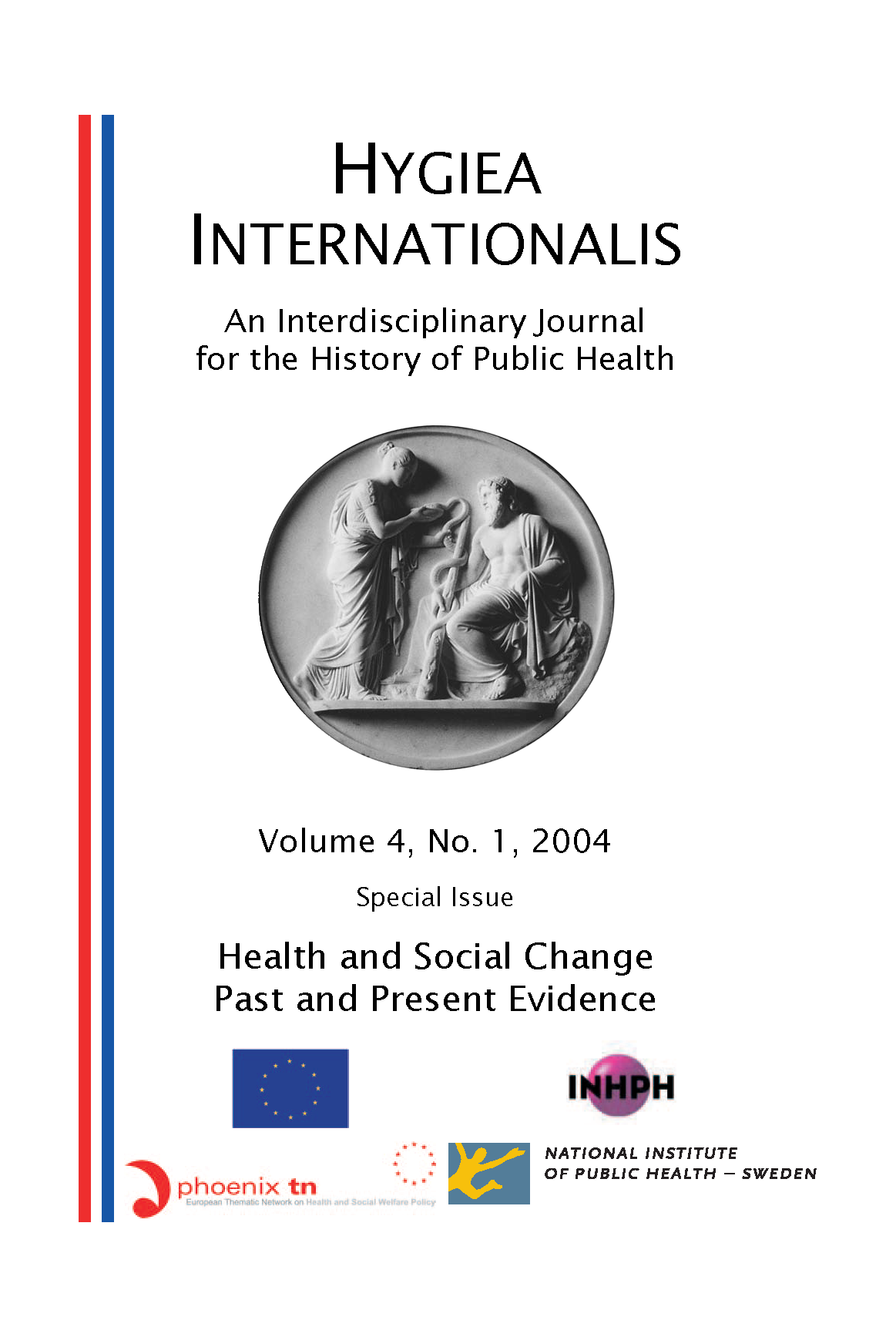Health and Vulnerable Men Sweden: From Traditional Farming Industrialisation
DOI:
https://doi.org/10.3384/hygiea.1403-8668.0441175Keywords:
Social transition, industrialisation, 19th century Sweden, sex differential mortality, gender rolesAbstract
The article analyses the relationship between social transition and health in late eighteenth and nineteenth century Sweden with special regard to gender. The transition of the agrarian society in early 19th century was characterised by declining mortality for children and women, while adult men experienced stagnating or even rising death rates, leading to a substantial male mortality hump. Adult men appear to have been more vulnerable to the negative effects of the structural economic change. Alcohol was an obvious mediator of the socio-economic health effects. Industrialisation in last decades of the 19th century was followed by a narrowing gender gap in mortality. Some important causes of the improvement of health, particularly among adult men, were the emergence of a materially better and more stable society in combination with the new popular movements providing the working class with new ideologies and interpretations of the world. In conclusion, the results suggest that specific gender roles often have tended to make men more vulnerable to changes of working conditions and less stable societies.Downloads
Published
2004-12-10
How to Cite
Sundin, J., & Willner, S. (2004). Health and Vulnerable Men Sweden: From Traditional Farming Industrialisation. Hygiea Internationalis: An Interdisciplinary Journal for the History of Public Health, 4(1), 175–203. https://doi.org/10.3384/hygiea.1403-8668.0441175
Issue
Section
Articles
License
Copyright (c) 2004 the Author(s)

This work is licensed under a Creative Commons Attribution-NonCommercial 4.0 International License.






